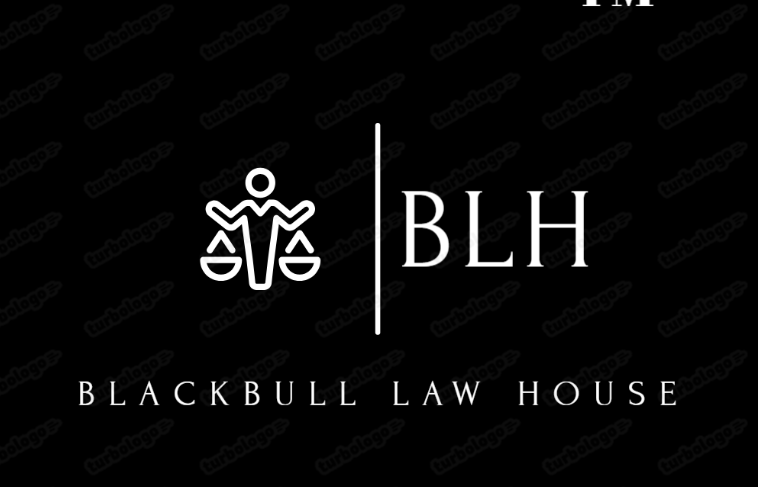FOR CORPORATE LEGAL MANAGEMENT SOLUTIONS (HANDLED AND INVESTED BY BLACKBULL CHAMBER OF INVESTMENT )
SERVICE INFO
LEGAL ACQUISITION
In Our Legal acquisition, we offer numerous strategic benefits to companies seeking to expand, secure new assets, or gain a competitive advantage. One of the primary benefits is the reduction of legal risks. By adhering to legal frameworks, a company minimizes exposure to lawsuits, penalties, and other regulatory complications that could arise from improperly obtained assets. This approach ensures that all intellectual property (IP) rights, patents, trademarks, and other valuable IP are transferred without dispute, protecting the buyer from potentially costly litigation in the future. Additionally, a legal acquisition provides the buyer with a clear title to assets, which is crucial for long-term security and potential resale. Clear ownership also allows businesses to use these assets as collateral for financing if needed, thus strengthening their financial flexibility.
The credibility gained from a legal acquisition process is another significant advantage. By demonstrating a commitment to regulatory and legal compliance, companies enhance their reputation with customers, investors, and other stakeholders. This ethical and transparent approach fosters trust, which can lead to better partnerships and business opportunities down the line. Legal acquisitions can also provide tax benefits, such as tax-deductible acquisition costs or depreciation of acquired assets over time, improving a company’s financial position. This is particularly advantageous for businesses looking to optimize their tax strategy while securing valuable assets. Furthermore, legal acquisition processes involve thorough due diligence, allowing the buyer to identify and address any potential liabilities or operational challenges beforehand. This preparation leads to smoother integration of assets or personnel, reducing business disruptions and ensuring the acquisition’s value is realized more effectively.
Access to financing is often directly tied to the legality of the acquisition. Many banks and investors require that acquisitions are conducted within the bounds of the law to approve funding. Ensuring legal acquisition can thus open the door to necessary capital, making it easier to expand or invest in further growth opportunities. Legal acquisitions also provide companies with vital protections, often through warranties, indemnifications, or other contractual safeguards. These agreements help address issues that may emerge post-acquisition, creating a safety net for the buyer and enhancing the acquisition’s long-term value. Moreover, clear and legally compliant acquisitions foster stability among employees and customers of the acquired entity. When handled legally, with open communication and regulatory adherence, acquisitions reduce the risk of employee turnover or customer loss, allowing the company to retain valuable human resources and clientele.
In addition to these benefits, legal acquisitions ensure the full transfer and protection of IP rights, which are often crucial assets for innovation-driven industries. Legal acquisition is a proactive approach that aligns with long-term strategic objectives, minimizing the risks associated with acquisitions while creating a strong foundation for future growth. Ultimately, these benefits make legal acquisitions not only a safeguard but also a catalyst for sustainable, profitable expansion, building shareholder value and enhancing the company’s competitive positioning. Legal acquisition is thus a comprehensive process that equips businesses to maximize asset value, reinforce ethical standards, and support business continuity in a competitive market.


Legal acquisition of assets or companies can offer several key benefits, including the following:
Reduced Legal Risks
Acquiring assets legally ensures that the buyer is not vulnerable to lawsuits or regulatory penalties. The ownership and intellectual property rights are cleanly transferred, reducing the risk of disputes or future claims.
Clear Title and Ownership
Legal acquisitions guarantee that the buyer obtains a clear title to assets, minimizing any potential claims from third parties. This clarity is essential for future use, resale, or leveraging the assets as collateral.
Enhanced Reputation and Credibility
Companies that prioritize legal acquisition enhance their reputation with customers, partners, and regulators. This trustworthiness can lead to better business relationships and opportunities for partnerships or financing.
Tax and Financial Benefits
Legal acquisitions can create opportunities for tax deductions, credits, or other financial benefits. For example, certain acquisition costs might be tax-deductible, and legally acquired assets can be depreciated over time.
Smooth Transition and Integration
A properly conducted legal acquisition often includes detailed due diligence, which can identify potential issues in advance. This makes post-acquisition integration smoother and reduces disruption to business operations.
Access to Financing and Investment
Many lenders and investors require that acquisitions be conducted legally to provide financing. A legal acquisition is essential to meet the requirements of banks, venture capitalists, and other financing entities.
Protection of Intellectual Property (IP)
Legal acquisitions ensure that all IP rights are transferred correctly, avoiding costly IP disputes. This is critical in industries where patents, trademarks, or trade secrets play a significant role.
Employee and Customer Retention
When acquisitions are done legally, with proper communication and compliance, it improves confidence among employees and customers, helping to maintain the acquired entity’s workforce and client base.
Long-Term Strategic Value
Legal acquisitions often come with warranties, representations, and indemnifications. These contractual safeguards protect the buyer’s long-term interests, ensuring that any issues arising from the acquisition can be addressed within the legal framework.
BUSINESS SAFETY SUPPORT
Legal business safety support services are specialized offerings that help companies manage risks, ensure compliance, and protect both physical and digital assets. Here’s an overview of key services typically provided by these support channels:
1. Legal Compliance and Advisory Services
Regulatory Compliance Consultation: Advising businesses on laws and regulations that impact their industry (e.g., OSHA for workplace safety, GDPR for data protection in the EU).
Risk and Liability Assessments: Identifying potential legal risks in operations, contracts, and partnerships to mitigate liability and avoid costly litigation.
Legal Document Preparation: Drafting and reviewing policies, employee handbooks, non-disclosure agreements, contracts, and other documents to ensure legal compliance.
2. Occupational Health and Safety (OHS) Services
Workplace Safety Audits: Conducting audits to identify potential hazards and recommending improvements to comply with legal safety standards.
Training Programs: Offering training for employees and management on safety protocols, emergency preparedness, and best practices for health and safety.
Safety Protocol Development: Creating and updating safety policies and procedures to protect employees and meet legal obligations.
3. Cybersecurity and Data Privacy
Data Protection Compliance: Ensuring that businesses meet data protection laws, such as GDPR, CCPA, and HIPAA, with secure data-handling practices.
Cyber Risk Management: Assessing and strengthening digital infrastructure to guard against cyberattacks, data breaches, and other digital threats.
Incident Response Planning: Developing response plans for data breaches or cybersecurity incidents to minimize risk and legal exposure.
4. Insurance and Liability Coverage
Business Insurance Consultation: Assisting businesses in selecting the appropriate insurance policies to cover property, liability, workers' compensation, and more.
Risk Management Plans: Creating plans to prevent incidents that might lead to insurance claims, such as workplace accidents or cybersecurity breaches.
5. Dispute Resolution and Legal Representation
Mediation and Arbitration: Providing alternative dispute resolution options that can prevent issues from escalating to court, saving time and costs.
Litigation Support: Representing businesses in court or providing legal advice when litigation arises, including for employee disputes, contract issues, or regulatory actions.
6. Employee Training and Reporting Mechanisms
Anonymous Reporting Channels: Implementing systems for employees to report safety or compliance concerns, helping prevent issues before they escalate.
Legal Awareness Training: Educating employees on legal obligations, safety standards, and proper procedures for reporting incidents and concerns.
Get in touch
Address
704, 7th floor, ILD TRADE CENTRE, SECTOR 47, GURUGRAM, HARYANA, INDIA


